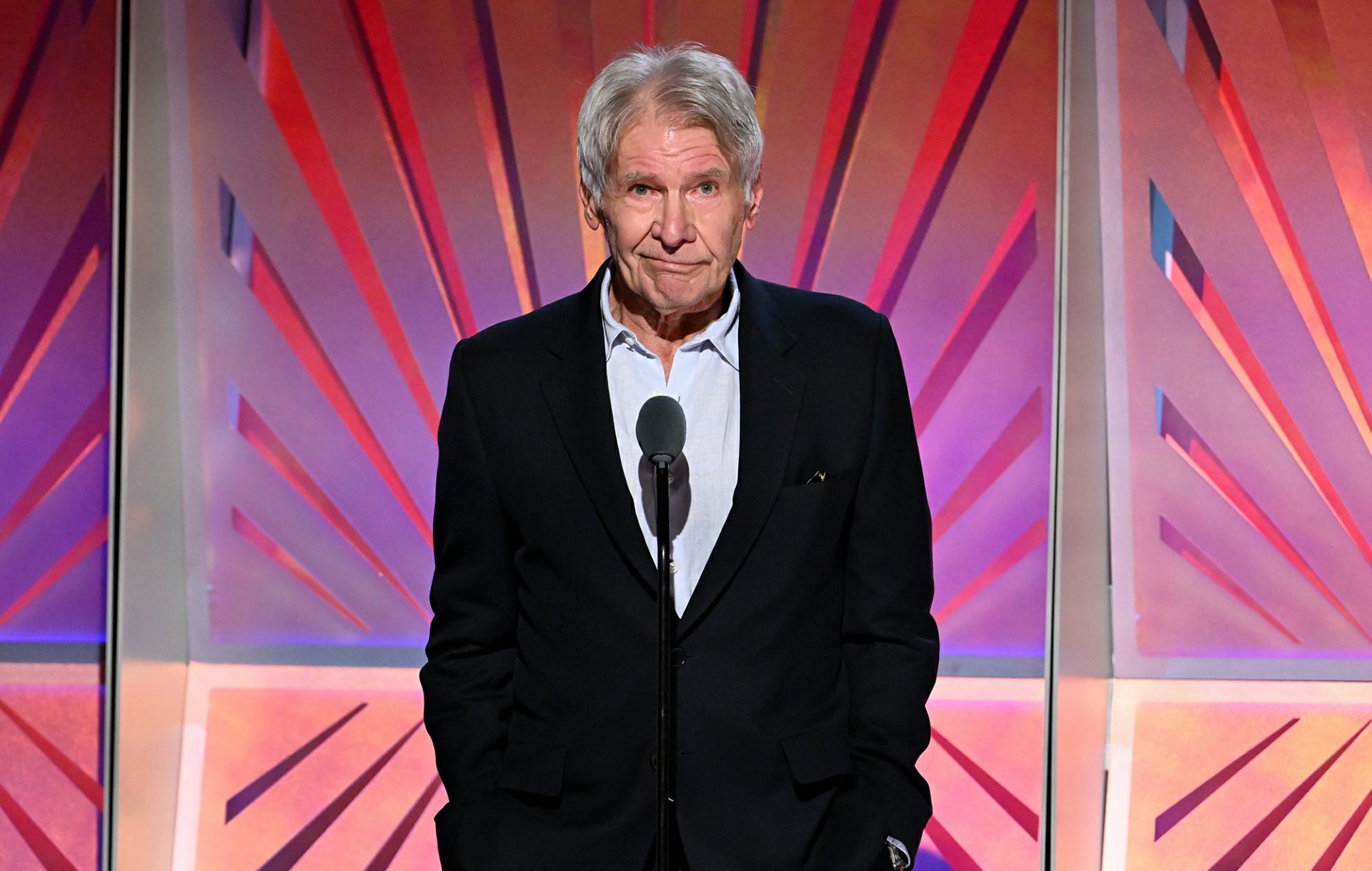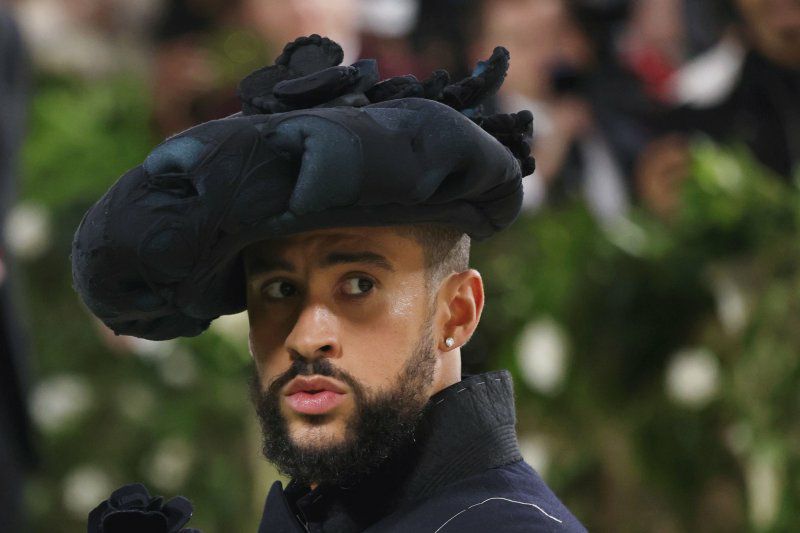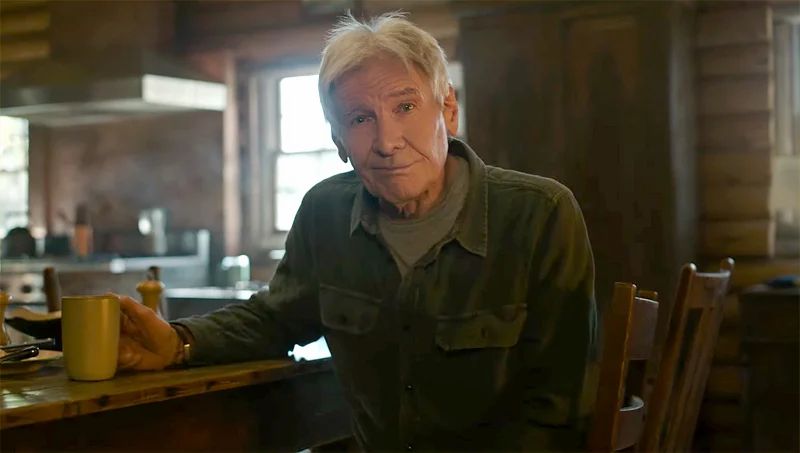When the announcement dropped that Bad Bunny would headline the 2025 Super Bowl Halftime Show, social media imploded.
The criticism was swift, bitter, and — for many — revealing.
“How can the biggest American stage go to a performer who sings in Spanish?”
“Where’s the patriotism?”
It was the same outrage loop America had seen before — until one man, a cinematic titan known more for action than activism, broke the silence.

🕰️ A LEGEND STEPS INTO THE NOISE
At 82, Harrison Ford has nothing left to prove. He’s played heroes who defied empires, outwitted villains, and survived the impossible. But in real life, his greatest weapon has always been restraint — the kind of quiet strength that doesn’t seek attention but commands it when it arrives.
So when Ford’s quote began circulating —
“If we start forbidding songs just because they’re not in English, we’ve lost the pure enjoyment of music.”
— it didn’t sound like a PR stunt.
It sounded like truth.
A few words. No grandstanding. No politics.
Just the weary wisdom of a man who’s seen what division costs.
🎵 WHEN ART BECOMES A BATTLEGROUND
Ford’s words hit like a calm thunderclap.
They reframed the entire debate — away from language, borders, or identity, and toward something older, deeper: the universality of art.
In his understated way, he reminded America that music isn’t property — it’s pulse. It moves through cultures, through time, through pain and joy, belonging to everyone and no one.
As one columnist wrote afterward, “Harrison Ford didn’t defend Bad Bunny — he defended the soul of music itself.”

🌎 AN UNLIKELY BRIDGE
Cultural analysts began calling Ford’s message “The Bridge Statement” — a rare, unifying moment in a fractured climate.
He wasn’t endorsing an artist or a genre. He was defending something sacred: the freedom to feel.
Younger audiences flooded social media with the hashtag #FordSaidItBest, pairing clips of Indiana Jones or Blade Runner with his now-iconic quote.
Memes showed him tipping his fedora under the words: “Let music speak any language it wants.”
It became more than a viral moment — it became a mirror.
🔥 THE QUIET REVOLUTION OF RESPECT
Ford’s “quiet defiance” stood in stark contrast to the outrage culture dominating the online landscape.
He didn’t yell, threaten, or cancel. He questioned.
He reminded the world that art’s power lies not in its conformity but in its courage to be different.
Maybe that’s why his words hit so deeply. They weren’t just about Bad Bunny or the Super Bowl — they were about who we’ve become as listeners, as a nation, as people.
“In every generation,” one critic wrote, “we need someone to remind us that art isn’t a weapon — it’s a bridge.”
🕊️ EPILOGUE: THE LEGEND AND THE LESSON
Whether the quote came from a press interview, a podcast, or a moment of passing conversation, its resonance is undeniable.
Because in a world drowning in noise, silence — when it comes from the right person — can sound like thunder.
And that’s what Harrison Ford delivered: not anger, not division, but a simple, timeless truth.
Music doesn’t need permission to belong.
